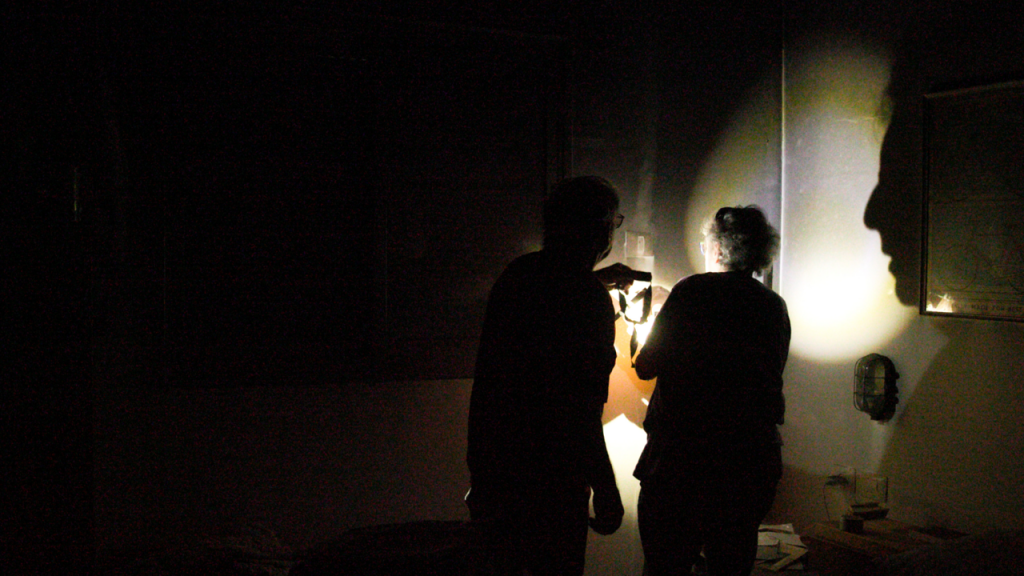For my money, what makes Steven Soderbergh special — what makes him, second only to Martin Scorsese, our greatest living filmmaker — is his career-long dedication to experimentation. He’s a tinkerer, willing to try just about anything, and often willing to make an entire movie just to play with something new. After working with some of the best cinematographers and editors in the business, he started shooting and cutting his movies himself, to eliminate the space between him, his actors, and his footage. He’s always first out of the gate with new technology, shooting his Che films on the then-new RED One and Unsane on an iPhone; with Bubble, he was the first major filmmaker to release a new film in theaters and digital simultaneously, now a standard practice. He made that film entirely with non-professional actors; he built movies around adult entertainer Sasha Gray (The Girlfriend Experience) and MMA fighter Gina Carano (Haywire), and changed their careers. He’s brought his guerilla style to prestige television, and quietly self-released projects online. He used his most ostensibly commercial projects—sequels to his smashes Ocean’s Eleven and Magic Mike—as opportunities to subvert audience expectations.
The experimental concept of his new film Presence is that it’s comprised entirely of subjective camerawork, though not quite in the same way as something like, say, Nickel Boys. The point-of-view he’s adopting here, first seen moving quickly but smoothly through a very empty house, is that of a ghost—the titular entity, which never leaves the confines of that house’s walls. That logline makes Presence sound like a haunted house movie, which isn’t entirely accurate, but it’s more of a character study, cloaked in the veil of the supernatural.
The empty house is populated, quickly, by a real estate agent (a too-briefly-seen Julia Fox) showing it to a suspiciously normal, nuclear family: mother Rebecca (Lucy Liu), father Chris (Chris Sullivan), daughter Chloe (Callina Liang), and son Tyler (Eddy Maday). We get a quick sense of who they are; Rebecca makes an offer before she’s even looked at the house, because the school district is all that matters, since Tyler is a star athlete with scholarship potential. Chloe, on the other hand, is an afterthought, a depressed kid whose best friend recently died in an apparent overdose.

We gather this information, and much of the rest of the exposition, solely via overheard interactions, snatches of dialogue that screenwriter David Koepp mostly manages to keep conversational. It’s a real achievement, how clear and keenly observed the family’s conflicts and dynamics are, especially considering those limitations. For Rebecca, it’s some shady business dealings, of which she tells her son, “Everything I’ve done, every single thing I’ve done, has been for you” and “It’s ok to go too far for the people you love.” (Oh, boy.) For Chloe, it’s Nadia, the friend she lost, whom she begins to suspect is observing her from the Great Beyond, and which seems to be the case — not only for the viewer, but according to the psychic who comes in to sniff out the strangeness of the house. “There’s something it needs to do,” she says, glancing at the camera. “But it doesn’t know what.”
That’s nothing new, within the tradition of paranormal cinema, but again, Soderbergh and Koepp are not coloring within the usual lines; they’re building to something less like a traditional horror payoff than a kind of melancholy inevitability. That’s teed up just as carefully as a bloodbath blowout, primarily in the character of patriarch Chris, who is played by the wonderful Sullivan with a potent mixture of empathy and hopelessness. (“Everybody, everything is comin’ apart,” he tells a friend, in an overheard phone call, with a shrug. Relatable!) The teen dialogue is less convincing (Koepp is currently 61 years old), but the writing of a manipulative would-be boyfriend character, played with worrisome familiarity by West Mulholland, is sadly timeless.
And Soderbergh’s direction is, as ever, first-rate—ruthlessly intelligent, emotionally sensitive, technically peerless. He’s shooting primarily with the extreme wide angle lens that stuck out like a sore thumb when sparingly used in the otherwise excellent No Sudden Move; it makes much more sense here, an excellent visual manifestation for the otherworldliness of its unseen main character. But this is also not some detached stylistic exercise, a point most keenly made in its closing scene, a literal howl of grief that realigns and refocuses everything that’s come before.
B+
“Presence” is in theaters this weekend.



